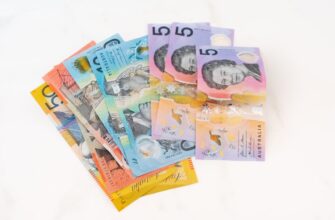- Introduction
- Why Vietnam is Embracing Bitcoin
- The Regulatory Landscape: Gray but Active
- How Vietnamese Use Bitcoin Today
- Challenges and Risks
- The Future of Bitcoin in Vietnam
- Frequently Asked Questions (FAQ)
- Is Bitcoin legal in Vietnam?
- Why does Vietnam lead in global Bitcoin adoption?
- How can I buy Bitcoin safely in Vietnam?
- Can I pay for goods with Bitcoin in Vietnam?
- What are the tax implications?
Introduction
Vietnam has emerged as an unlikely powerhouse in the cryptocurrency world, consistently ranking among the top countries globally for Bitcoin adoption. Despite regulatory ambiguities, Vietnamese citizens are embracing digital assets at an astonishing rate, driven by a tech-savvy youth population, remittance needs, and a quest for financial alternatives. This article explores Vietnam’s unique crypto landscape, examining the forces fueling adoption, regulatory challenges, real-world use cases, and what the future holds for Bitcoin in this dynamic Southeast Asian economy.
Why Vietnam is Embracing Bitcoin
Vietnam’s rapid Bitcoin adoption stems from a convergence of socioeconomic factors:
- Youthful, Tech-Literate Population: Over 70% of Vietnamese are under 35, with high smartphone penetration and openness to digital innovation.
- Remittance Economy: Bitcoin offers faster, cheaper cross-border transfers for Vietnam’s vast diaspora (18.5 million people abroad), avoiding high traditional fees.
- Inflation Hedge: With historical currency volatility, Bitcoin is seen as a store of value amid fluctuating VND and real estate markets.
- Financial Inclusion: Only 31% of adults have bank accounts. Crypto provides access to digital finance via mobile apps.
- Entrepreneurial Culture: Startups and freelancers leverage crypto for global payments and investment diversification.
The Regulatory Landscape: Gray but Active
Vietnam lacks comprehensive cryptocurrency legislation, creating a high-risk, high-reward environment:
- Bitcoin isn’t recognized as legal tender, but owning/trading isn’t explicitly illegal.
- The State Bank of Vietnam (SBV) prohibits crypto for payments, issuing repeated warnings about volatility and scams.
- Taxation remains unclear, though authorities are exploring frameworks to capture crypto gains.
- Despite restrictions, enforcement is limited, allowing peer-to-peer (P2P) trading to thrive on platforms like Binance P2P and Remitano.
How Vietnamese Use Bitcoin Today
Beyond speculation, practical applications are growing:
- Trading & Investment: Local exchanges (e.g., Vicuta, T-REX) and global platforms serve millions of active traders.
- Retail Payments: Select cafes, e-commerce sites, and tourism businesses accept Bitcoin discreetly.
- Freelancer Income: IT professionals receive payments in crypto for international gig work.
- Savings & Asset Protection: Families use Bitcoin to preserve wealth amid economic uncertainty.
- NFTs & Play-to-Earn: Axie Infinity’s success highlighted blockchain gaming’s income potential.
Challenges and Risks
Adoption faces significant hurdles:
- Regulatory Uncertainty: Sudden policy shifts could disrupt access or criminalize activities.
- Security Threats: Phishing scams, exchange hacks, and fraudulent ICOs target inexperienced users.
- Market Volatility: Bitcoin’s price swings can erase savings quickly.
- Infrastructure Gaps: Limited crypto ATMs and merchant adoption hinder everyday use.
- Environmental Concerns: Energy-intensive mining conflicts with Vietnam’s sustainability goals.
The Future of Bitcoin in Vietnam
Trends suggest continued growth with evolving dynamics:
- Regulation may formalize by 2025, potentially licensing exchanges and taxing transactions.
- Integration with traditional finance could emerge through bank-backed crypto products.
- DeFi and Web3 innovations will attract developer talent and venture capital.
- Education initiatives might reduce scam risks as awareness grows.
- Vietnam could become a testbed for CBDCs (Central Bank Digital Currencies) competing with Bitcoin.
Frequently Asked Questions (FAQ)
Is Bitcoin legal in Vietnam?
Bitcoin isn’t legal tender, but owning or trading it isn’t explicitly illegal. The State Bank bans its use for payments, though enforcement is inconsistent. Always monitor regulatory updates.
Why does Vietnam lead in global Bitcoin adoption?
High smartphone usage, a young population, remittance needs, inflation concerns, and limited banking access drive grassroots adoption. Vietnam ranked #1 in Chainalysis’s 2023 Global Crypto Adoption Index.
How can I buy Bitcoin safely in Vietnam?
Use reputable P2P platforms like Binance or Remitano, verify seller ratings, enable 2FA, and transfer funds to a private wallet (e.g., Ledger, Trust Wallet). Avoid unregulated exchanges.
Can I pay for goods with Bitcoin in Vietnam?
Technically illegal, but some cafes, online stores, and tourism services accept it discreetly. Most transactions remain peer-to-peer trades or investments.
What are the tax implications?
No specific crypto tax laws exist yet, but profits may fall under capital gains or income tax. Consult a local tax advisor for compliance.








